By Richard Olivarez, Ocean Reef Vacation Rentals & Real Estate
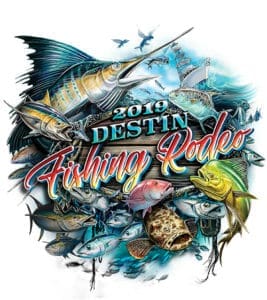 Waves gently crashing, a pair of twin diesel engines roaring and a salty mist in the air – this is where I fell in love with deep sea fishing. Only a handful of miles from the sandy white shores of Destin, a place I’ve called home for nearly two decades, I just recently discovered why this piece of paradise even exists – or at least got its start.
Waves gently crashing, a pair of twin diesel engines roaring and a salty mist in the air – this is where I fell in love with deep sea fishing. Only a handful of miles from the sandy white shores of Destin, a place I’ve called home for nearly two decades, I just recently discovered why this piece of paradise even exists – or at least got its start.
Aboard the largest private charter fishing boat in the region, I set out with a camera man and a videographer in tow, to document a day in the life of Relentless Captain Brant Kelly, a descendant of one of the founding families of our beach-side village. My team was prepped and already had an idea on what to expect.
Well, at least that is what we thought…
While we loaded our gear aboard this massive fishing vessel, I spent time interviewing a few of the dockside ‘fishheads’ – a term of endearment for those who make their love of the sea and its abundant catch their livelihoods. Clearly not a job for the faint of heart, the physical demand and mental conditioning required to succeed in this career field is not found in all. Although I understand that their chosen craft affords a unique lifestyle of adventure and Destin is known worldwide as “The World’s Luckiest Fishing Village”, I didn’t fully grasp the importance of fishing and why this intimate region was so acclaimed.
After a few routine checks and a couple of stops in the harbor to retrieve bait from preset traps, the Relentless veered south as we left the home of the largest fleet of fishing vessels in Florida and set out for our adventure in the Gulf of Mexico. The first piece of prominence I encountered underscoring Destin’s notorious slogan was a little geography lesson provided by a friendly local mate. He explained that Destin is home to a 100-fathom curve located in close proximity to our shores (clearly viewable on Google EarthTM) just southwest of Destin. He also went into great detail as to why that is important. In other charter sport fishing destinations, reaching deep waters that host the big fish can take up to a day.
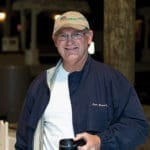
We arrived at the critical deep water fishing coordinates shortly after the mate concluded his lesson. The tackle was dispatched, and we cast our first lines. It didn’t take long, the angler next to me saw his line go tight. He reeled quickly and pulled in our first catch. Keep in mind this was my first experience with private charter fishing. I had been on a party boat many years ago, but this was my initial interaction with what I personally now believe as the only way to fish. I was eager to catch a fish of my own, and as I sat there taking in the sites and sounds of the open waters, my pole bent down nearly in half, and a fish was one the line. Unlike party boat fishing, on a private charter the mates bait your pole and walk you through everything, so when it came time to reel in the catch I was ready to go. Bringing in a big fish isn’t easy, but the rush is truly exhilarating.
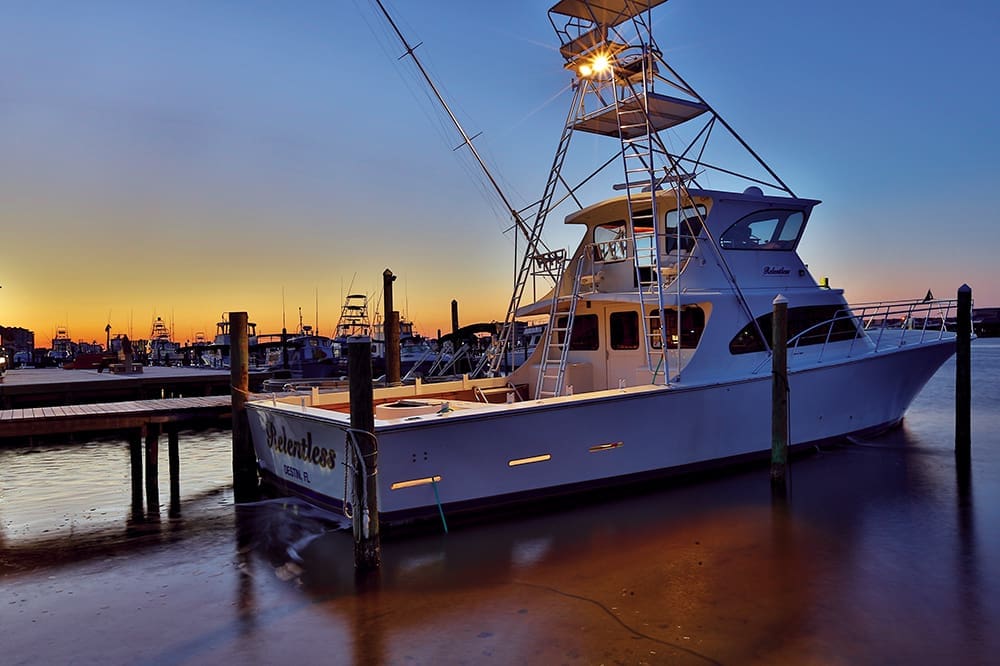 Our day at sea continued on and every moment was as exciting as the first catch. The addition of each new fish only heightened my newfound affection of deep sea fishing. Much of our “work” at hand was nearly completed as my photographer and videographer had most of the content needed for our Local Time feature. So, I headed up to the tower to sit and chat with the Captain as he set course for the docks. At the time I didn’t know it, but my conversation with Brant Kelly as he navigated the Gulf initially planted the seed for this article. Brant isn’t the first fisherman in his family. I learned that Coleman Kelly, Brant’s father, captained the Martha-Gene, Destin’s first deep sea fishing sport charter boat. Its inaugural voyage took place in August 1939, and since then many boats and fisherman have come and gone. However, Brant and his family are not the only descendants of this spectacular town that was once simply known as East Pass.
Our day at sea continued on and every moment was as exciting as the first catch. The addition of each new fish only heightened my newfound affection of deep sea fishing. Much of our “work” at hand was nearly completed as my photographer and videographer had most of the content needed for our Local Time feature. So, I headed up to the tower to sit and chat with the Captain as he set course for the docks. At the time I didn’t know it, but my conversation with Brant Kelly as he navigated the Gulf initially planted the seed for this article. Brant isn’t the first fisherman in his family. I learned that Coleman Kelly, Brant’s father, captained the Martha-Gene, Destin’s first deep sea fishing sport charter boat. Its inaugural voyage took place in August 1939, and since then many boats and fisherman have come and gone. However, Brant and his family are not the only descendants of this spectacular town that was once simply known as East Pass.
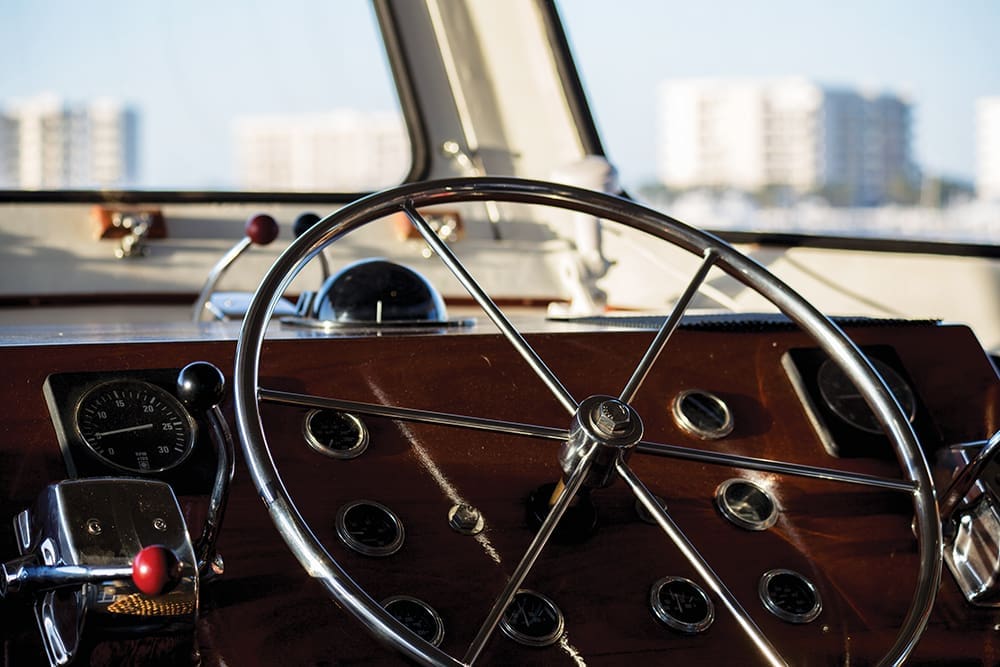 My experience aboard the Relentless stuck with me. Not only did my deep sea fishing trip awaken my inner fisherman, it also heightened my passion for history. Traces of Destin’s roots as a fishing camp started to appear vividly. I began to take notice of historic photos scattered around town. I listened intently at stories told along the Destin Harbor and at the docks in Sandestin and found them intriguing. Although the visceral experience of fishing still lingered for me, I decided to first cultivate my intrigue of local history in other venues. My initial attempt at a historical article started with a coastal community located right next to Destin. I was fortunate enough to sit with Linda Hodges, a descendant of the Nitsos family, founders of the prestigious community of Frangista Beach. Still residing in the community of her ancestors, Linda took the time to discuss a range of topics – including development, the past, and the present. I left my meeting with the details of Frangista Beach’s history that I sought, but also began to appreciate the intricacies and relationships of true Destin locals. Destin is not what it was when fishing Captain Leonard Destin ventured down from New London, Connecticut back in 1845. It’s not even what it was just a few years ago, but as I continued my personal journey through this region’s heritage, I realized the remnants of fishing and the initial settlers are woven in the fabric of this now world famous vacation destination.
My experience aboard the Relentless stuck with me. Not only did my deep sea fishing trip awaken my inner fisherman, it also heightened my passion for history. Traces of Destin’s roots as a fishing camp started to appear vividly. I began to take notice of historic photos scattered around town. I listened intently at stories told along the Destin Harbor and at the docks in Sandestin and found them intriguing. Although the visceral experience of fishing still lingered for me, I decided to first cultivate my intrigue of local history in other venues. My initial attempt at a historical article started with a coastal community located right next to Destin. I was fortunate enough to sit with Linda Hodges, a descendant of the Nitsos family, founders of the prestigious community of Frangista Beach. Still residing in the community of her ancestors, Linda took the time to discuss a range of topics – including development, the past, and the present. I left my meeting with the details of Frangista Beach’s history that I sought, but also began to appreciate the intricacies and relationships of true Destin locals. Destin is not what it was when fishing Captain Leonard Destin ventured down from New London, Connecticut back in 1845. It’s not even what it was just a few years ago, but as I continued my personal journey through this region’s heritage, I realized the remnants of fishing and the initial settlers are woven in the fabric of this now world famous vacation destination.
Still keeping the importance of Destin’s history of fishing on the back burner, I continued moving forward, though the past. On my quest I was fortunate enough to bump into the Allen Family of Dune Allen Beach. They shared many stories and happy childhood memories with me as they provided access to their personal photo album. Their family’s story is centered in South Walton, just minutes to the east of Destin, and their fondest memories were of Oyster Lake, a rare example of a coastal dune lake found here and only two other places in the world. Developing the area was at the forefront, but as I flipped through their family memories, images of fishing down on the docks in Destin seemed to fairly jump from the pages.
Then, in the fall of last year, we found out our magazine had been selected to be the first ever official program of the Destin Seafood Festival, an event created by the wives of charter and commercial fisherman 35 years ago. Now it was my job to learn about this history of fishing in Destin. We went to work and created our first onset to our magazine. The back of our fall issue hosted the twelve-page program in reverse. You flipped the program over and also had the current issue of our magazine. We were ecstatic, but unfortunately due to adverse weather, the 2013 Seafood Festival never took place.
In the underutilized Destin Seafood Festival program, we only briefly touched on the history of this piece of paradise. Many of the questions that had formed since my time in the Gulf, what now seemed long ago, still went unanswered. Little pieces had filled in the some of the cracks, but I still wanted to know what transpired and laid the foundation for what we have today. So as the need for knowledge was growing, I decided to go to AJs.
As odd as it may seem, in my search for answers, I had to stop by AJs Seafood & Oyster Bar located right on the Destin Harbor, and home to the weigh-ins during the Annual Destin Fishing Rodeo. As luck would have it, we were featuring them in this issue in our Local Time segment. I did have a meeting right after at the nearby Destin History and Fishing Museum, but AJs was my first stop of the day. As I toured the massive operation with their Marketing Director, we spoke of history and fishing. We discussed seafood and the other endeavors undertaken on-site. Many fishermen sat in their harbor side bar, and boats came and went along the docks – which were alive with activity. On my way out, we stopped by the hostess’ stand and took a look at a few of the many historic photos decorating their walls. The question was brought up, “Do you know how Destin became known as the World’s Luckiest Fishing Village?” Seems like something I should know, but I only knew part of the answer. My AJs guide took time to explain. In 1965, during the 8th Annual Destin Fishing Rodeo, Governor Brunson was passing through town. With his political team in tow, he stopped for a photo op with Captain Reddin. Although reluctant, Governor Brunson and his wife boarded Reddin’s fishing boat. He convinced them that they had time, no matter how brief his appearance was, to catch a fish. Tearing out into the Gulf, the group returned only 15 minutes later with a fifteen-pound Mackerel! When the governor returned to Tallahassee, he was interviewed on TV about his caravan along the coast. When asked if it was unusual to catch a fish of that size in that short amount of time, Governor Brunson replied, “Not if you fish in Destin, those people live with the fish! It has to be The World’s Luckiest Fishing Village!”
My last stop on my personal pursuit of knowledge was at the Destin History and Fishing Museum. Although many may realize this would be the most logical destination for history seekers, it was my journey here that helped me fully understand the impact of our fishing founders. I was greeted by a friendly volunteer and escorted to the office of Kathy Marler-Blue, the Associate Director of the museum. The premise of our meeting was to craft an article dedicated solely to the history of Destin charter fishing. At the time, that was still my focus, but I had a gut feeling that there may be another more valuable and intriguing angle. Kathy took time to give me a personal tour of their intimate museum. In addition to an abundance of Destin history, she included a little of her personal history. As you may have deduced, she is a direct descendant of the Marler family and married into the Blue family, two the Destin’s founding families. ‘Uncle Billy’ Marler moved to “East Pass” in 1879 to fish alongside Captain Destin. He quickly became one of the best local fishermen and constructed over 100 boats in his lifetime. Among other accomplishments, later in life he became the first postmaster and honored his former employer by naming “East Past” Destin.
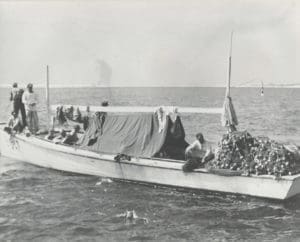 As we journeyed through the halls of history, the volunteer’s shift ended and Kathy had to man the front door and the phones. I took this time to explore the photos and remnants from the years passed. At the same time, I eavesdropped on her interaction with museum patrons. She lit up as she shared pertinent details with both young and old. Each guest of the museum was treated as family. The stories she shared were of passion, love, and hardship. Lost in thought, I continued my personal tour. I noticed many familiar family names and locales. Details on the people and places I personally came in contact with and experienced were all housed here. My full understanding of the history of fishing in my hometown came together. I now had everything I needed for my article.
As we journeyed through the halls of history, the volunteer’s shift ended and Kathy had to man the front door and the phones. I took this time to explore the photos and remnants from the years passed. At the same time, I eavesdropped on her interaction with museum patrons. She lit up as she shared pertinent details with both young and old. Each guest of the museum was treated as family. The stories she shared were of passion, love, and hardship. Lost in thought, I continued my personal tour. I noticed many familiar family names and locales. Details on the people and places I personally came in contact with and experienced were all housed here. My full understanding of the history of fishing in my hometown came together. I now had everything I needed for my article.
As I reviewed my notes and recalled my present day journey, I realized something. While Destin is now the glamorous and strikingly beautiful playground of many, the rugged lifestyle and dedication to fishing is still present. Even off the many boats and away from the docks, fishing is the most valuable thread in the fabric of our community. Traces of the founding families can be found everywhere. Even the Destin family – the town’s namesake – owns the much-loved Dewey Destin Restaurants. They still call this quaint coastal retreat their home. Although the present population of this town swells tremendously when the weather is warm, the core population of locals is rather small. Nearly every local you encounter has their own personal connection to the history of our town and many have their own tales of their exploration of the Gulf.
So as I sat down to write about the History of Fishing in Destin, I came to a realization. Our story has been told before and will be told forever going forward. It’s a rich story, but it is better realized through your own personal experiences.


































































